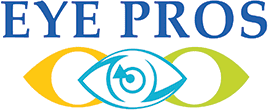Signs and Symptoms That You Require an Eye Exam in Boise
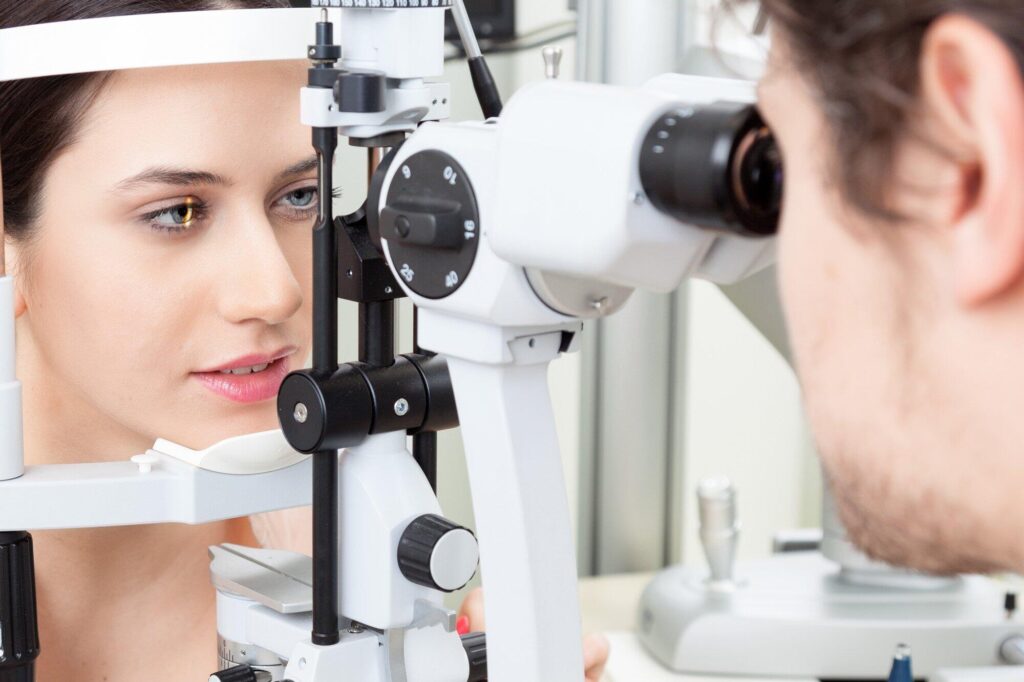
Over 12 million Americans aged 40+ suffer from vision impairment. Vision impairment can hugely impact your independence and quality of life. If you live in Boise, maintaining optimal eye health is essential for a vibrant and active lifestyle. One of the fundamental steps in protecting your vision is regular eye exams. These exams often uncover underlying eye conditions that may otherwise go unnoticed. Recognizing the signs and symptoms that you need an eye exam can help you take proactive steps towards preserving your vision. Below are indicators that should prompt you to schedule your next eye exam in Boise. The Importance of Eye Exams in Boise Eye exams are not just about getting a new prescription for glasses or contacts. They play a vital role in maintaining your eye health. Let’s delve into why eye exams in Boise are good for you. Detect Vision Problems Early Regular eye exams are essential in catching vision problems like glaucoma, especially since many eye conditions progress without any obvious symptoms. By scheduling routine checkups, you can identify issues such as vision impairment causes at an early stage, preventing complications that might affect your long-term eye health. Early detection gives you the advantage of starting treatment before the condition worsens, safeguarding your vision for the future. Monitor Eye Health If you have systemic health concerns like diabetes, it’s essential to prioritize monitoring your eye health. For instance, diabetes can lead to diabetic retinopathy, a condition that can cause significant vision issues if not caught early. By scheduling routine eye exams, you can detect potential complications before they escalate, ensuring you maintain your optimal eye health and prevent long-term damage. Regular checkups allow for early intervention, which is key to protecting your vision and overall health. Update Prescriptions for Visual Clarity Your eyes change over time. As a result, having an outdated prescription can lead to eye strain and even worsened vision. If you rely on corrective lenses, regular eye exams are essential for updating prescriptions. This will allow you to see the world clearly and comfortably. Access Specialized Care and Treatment Each person’s eye health needs are unique, and regular eye exams allow optometrists in Boise to develop tailored treatment plans that address your specific vision concerns. These personalized plans ensure that you receive the specialized care and treatment necessary to maintain optimal eye health and prevent future complications. Whether you’re managing glaucoma, diabetic retinopathy, or simply need corrective lenses, individualized care is key to achieving the best possible outcomes. Signs and Symptoms That You Need an Eye Exam in Boise Eye problems can often be corrected if detected early. If you’re experiencing any of the following signs and symptoms, it may be time to book an eye exam in Boise. Regular exams are essential for maintaining optimal vision health and addressing issues before they progress. You Have Red or Itchy Eyes One of the most common signs that you need an eye exam is red or itchy eyes. While occasional redness or itchiness may be due to allergies or fatigue, persistent symptoms could indicate an underlying condition such as dry eye syndrome or conjunctivitis (pink eye). These symptoms can be uncomfortable, but with a proper diagnosis, conditions like dry eyes can be managed effectively through targeted dry eye relief and care. These symptoms can be linked to dry eye syndrome or pink eye. Luckily, you can manage these conditions with a proper diagnosis and treatment. You Have Watery Eyes Boise’s climate is often dry. As a result, environmental factors like wind and dust can cause you to experience increased tear production as a protective mechanism. However, persistent watery eyes warrant an eye exam in Boise. It may be a sign of eye conditions such as blocked tear ducts or conjunctivitis. Going for an eye exam can help you identify the root cause of watery eyes and determine the appropriate treatment. You Experience Eye Turning Also known as strabismus, eye turning is a condition where the eyes do not align properly. You may notice that one or both eyes turn inward, outward, upward, or downward. This can lead to double vision. Having strabismus may affect your depth perception. If left untreated, it may also result in vision problems or amblyopia (lazy eye). An eye exam can help you diagnose strabismus early and implement suitable interventions. You Experience Excessive Blinking or Eye-Rubbing With the prevalence of digital devices, screen time has become prevalent. If you spend prolonged hours on digital screens, you may experience frequent blinking or rubbing of the eyes. It may be a sign of eye fatigue or strain. These habits may signal the need for a comprehensive eye exam to assess your visual health. Your eye doctor in Boise can recommend strategies to reduce eye strain for optimal comfort. You Have to Deal With Squinting or Covering One Eye Squinting or covering one eye while focusing on objects can be a sign of refractive errors such as nearsightedness or astigmatism. These behaviors may be common among children as they struggle to see clearly. An eye exam in Boise can accurately diagnose these conditions and provide tailored solutions. You Have Frustration With Learning and a Short Attention Span In children, frustration with learning or a short attention span may be due to undiagnosed vision problems. Issues like amblyopia (lazy eye) can affect your child’s ability to concentrate and learn well. Scheduling a comprehensive eye exam in Boise for your child can help identify any vision issues early. This helps ensure they get optimal pediatric eye care. You Experience Light Sensitivity Light sensitivity or photophobia can be signs of underlying vision problems. These symptoms may indicate conditions like: These issues can impact your visual comfort and clarity. An eye exam in Boise can help you pinpoint the cause of these issues and get recommendations on suitable corrective measures. You Have Eye Pain Eye pain can stem from various sources, including injuries or underlying conditions such as uveitis. Prompt evaluation through an eye exam
Healthy Eyes, Happy Life: Regular Eye Exams with Idaho Falls Optometrist
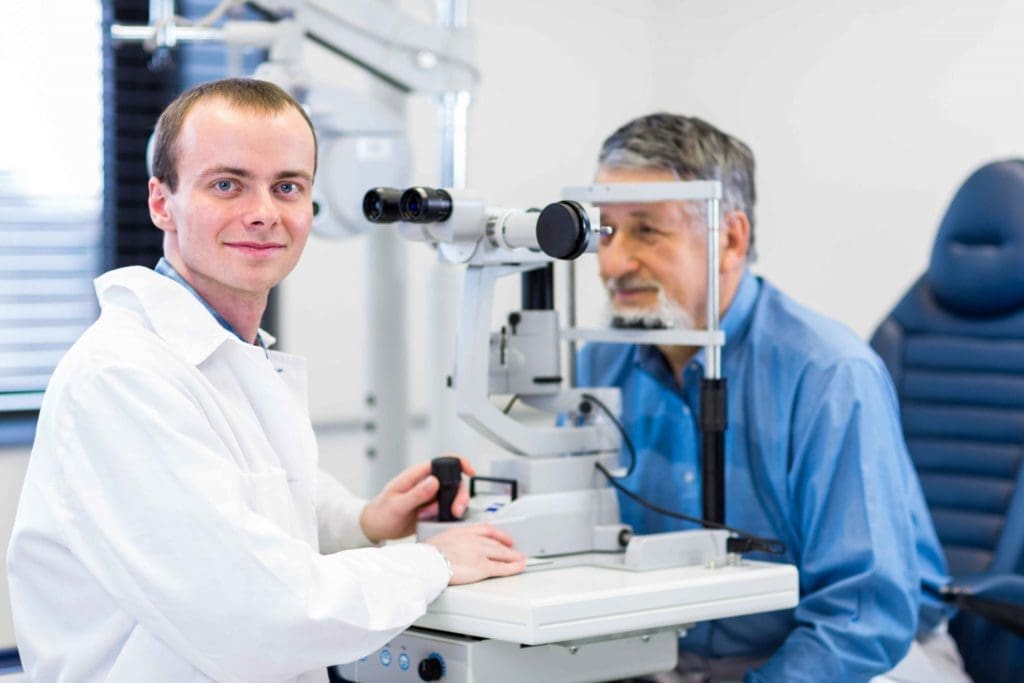
As you look around the gorgeous Idaho Falls area, it’s easy to appreciate how valuable your eyes are. But how can you make sure they stay healthy and effective, allowing you to appreciate the splendor of Idaho for years to come? The answer is regular eye exams! Today we’re talking about finding an Idaho Falls optometrist and shedding a light on why prioritizing your eye health is a necessity for a happy, fulfilled life. Understanding Eye Health When we talk about eye health, it’s like discussing the health of a complex, finely-tuned camera. Our eyes work in a similar way, capturing light and turning it into images that our brain can understand. This process lets us see the beauty in our surroundings, recognize faces, and navigate our world. The eye is made up of several parts, each playing a crucial role in vision. The cornea is the eye’s front window, helping to focus incoming light. The lens sits behind the cornea, fine-tuning focus, much like the lens of a camera. At the back of the eye is the retina, a layer of cells that senses light and sends signals to the brain. These parts work together seamlessly to provide us with vision. Issues With the Eye However, just like any complex system, things can go wrong. One common eye problem is nearsighted and farsighted, where distant or nearby objects appear blurry depending on the condition. Others are farsightedness, making it hard to see things up close, and astigmatism, causing overall blurry vision. More serious conditions like glaucoma, cataracts, and age-related macular degeneration can lead to significant vision loss if not addressed. Lifestyle choices can also impact our eye health. For example, spending a lot of time in front of screens can strain our eyes. Eating a diet low in essential nutrients can affect vision over time. Even exposure to too much sunlight without proper eye protection can be harmful. Taking care of our eyes doesn’t have to be complicated. Simple steps can make a big difference in maintaining eye health. For starters, it’s vital to protect our eyes from the sun. It’s also about eating a balanced diet rich in fruits and vegetables, and managing screen time. The Significance of Regular Eye Exams When you visit an eye doctor, they do more than just check how well you can see. They perform a comprehensive examination that looks at all aspects of your eye health. This includes tests to measure your vision sharpness and check for common eye problems. The eye doctor also examines the inside and outside of your eye for signs of any diseases. These exams are crucial because many eye diseases do not show symptoms in their early stages. Catching eye diseases early can often lead to better outcomes. Diseases like glaucoma, for example, can cause blindness if not treated. However, if detected early during a routine eye exam, steps can be taken to manage the disease and protect your vision. This is why regular eye exams are so important. They can find problems before they cause significant damage or lead to vision loss. For those who wear glasses or contacts, an up-to-date prescription is essential for clear vision. It’s also about ensuring your eyes are healthy. Over time, your vision can change. Regular eye exams ensure that your prescription matches your current vision needs. This not only helps you see better but also reduces the strain on your eyes, which can prevent future problems. Idaho Falls Eye Care When it comes to eye care, finding the right local optometrist is a crucial step. An optometrist is not just a doctor for your eyes; they are your partner in maintaining your vision health. They help you navigate through changes in your vision, provide solutions for eye health issues, and guide you in preventing future problems. When selecting an Idaho Falls eye doctor or optometrist, consider their qualifications, experience, and the feedback from their patients. A good optometrist will make you feel comfortable, listened to, and confident in the care you are receiving. Idaho Falls is home to a wide range of eye care services tailored to meet the needs of its community. From comprehensive eye exams that assess everything from your vision sharpness to potential eye diseases, to specialized services like pediatric eye care, contact lens fittings, and treatments for specific conditions such as glaucoma or diabetic retinopathy. The goal is to provide a one-stop solution for all your eye care needs, ensuring you and your family maintain optimal eye health. Accessibility to quality eye care is essential for the community’s well-being. Idaho Falls values this principle, offering various options to ensure everyone has access to the eye care they need. This might include community programs that offer eye care services at reduced rates or free eye exams for individuals who qualify. These efforts ensure that economic factors do not prevent anyone from receiving necessary eye care. Remember, regular visits to your optometrist play a significant role in not just maintaining your vision but also in your overall quality of life. By investing in your eye health, you are setting the foundation for a clearer, brighter future. Preventative Measures for Healthy Eyes Protecting our eyes is crucial for maintaining good vision throughout our lives. One effective way to safeguard our eyes is by wearing protective eyewear. Whether you’re playing sports, working with tools, or spending time outdoors, the right glasses can shield your eyes from injury and harmful UV rays. It’s not just about safety; it’s about ensuring your eyes are protected against the elements that can cause long-term damage. Nutrition also plays a vital role in eye health. Eating a diet rich in fruits, vegetables, and omega-3 fatty acids can help protect your eyes from age-related issues and keep them functioning well. Nutrients like vitamin C, vitamin E, zinc, and lutein have been linked to a lower risk of major eye conditions. Think of food as fuel for your eyes – the better the quality, the better your
How to Find the Best Twin Falls, Idaho Optometrists
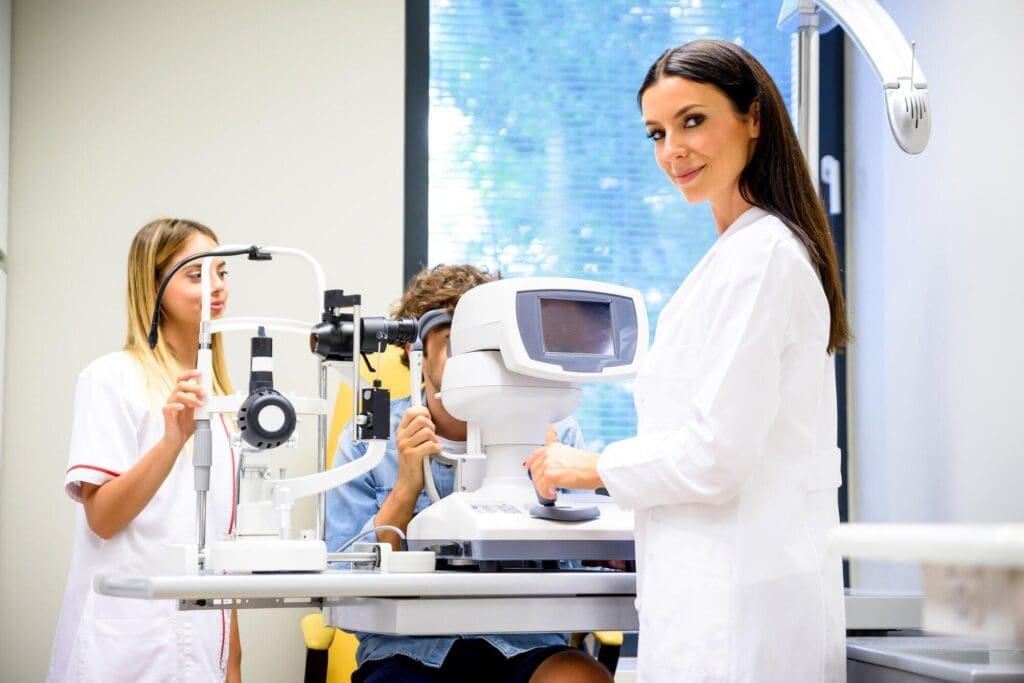
Searching for Twin Falls, Idaho optometrists may be a bit challenging, but it doesn’t have to be. Finding the right local optometrist can make all the difference in maintaining your eye health, and subsequently, your quality of life. Our eyes are the windows to the world, so entrusting their health to a skilled professional is vital. This article is your compass. We’ll guide you through the landscape of eye care in Twin Falls, revealing the best optometrist that the Gem State has to offer. Discover how to discern between mediocre and exceptional eye care, because your sight is too important to settle for less! Read on to learn more. What Is an Optometrist? Before we discuss the process of finding the best optometrist in Twin Falls, it’s important to understand the role of an optometrist. An optometrist is a healthcare professional who specializes in the examination, diagnosis, and treatment of eye and vision problems. They are licensed to prescribe medications, correct refractive errors with glasses or contact lenses, and provide pre- and post-operative care for eye surgeries. Optometrists are trained to detect a wide range of eye conditions, including glaucoma, cataracts, and macular degeneration. They also play a vital role in identifying systemic health issues that may manifest in the eyes. Why Routine Eye Exams Are Essential Regular eye exams are essential for maintaining good eye health. They can help identify initial signs of eye conditions and prevent potential vision loss. Here are a few reasons why scheduling a comprehensive eye exam with a local optometrist is necessary: Early Detection of Eye Conditions The majority of eye conditions develop slowly and are often asymptomatic in their early stages. Routine eye exams can detect these conditions at an early stage. This increases the chances of successful treatment and prevents further deterioration of vision. Updating Prescription Glasses or Contact Lenses If you wear glasses, regular eye exams are necessary for verifying that your prescription is up-to-date. Your vision may alter as time goes on. Therefore, an optometrist can adjust your prescription accordingly, allowing you to see as clearly as possible. Overall Eye Health Assessment Eye exams test your visual acuity, but also examine the entirety of your eye health. Optometrists can detect signs of eye diseases, infections, or abnormalities that might not have any obvious symptoms. Early intervention is vital in managing these conditions effectively. Tips for Finding Local Optometrists Finding Twin Falls, Idaho optometrists becomes easier if you utilize various resources. Start by asking for recommendations from friends, family, or colleagues who live in the area. Personal recommendations can provide valuable insights into the quality of care provided by specific optometrists. You can also use online directories or search engines to find a list of local eye doctors in Twin Falls. Many websites provide comprehensive information about the optometrist’s qualifications, services, and patient reviews. Make a list of potential optometrists and narrow down your options based on other factors such as location, office hours, or accepted insurance plans. Questions To Ask When Selecting an Eye Doctor Once you have a shortlist of potential Twin Falls, Idaho optometrists, it’s a good idea to ask them a series of questions to further evaluate their suitability for your needs. A few important questions to ask include: What Is Your Educational Background and Experience? This is a vital question to ask because it’ll help you gauge the eye doctor’s credentials. By knowing their educational background, you can feel confident that you’re getting your eyes examined by someone with adequate education. Knowing this information will put you at ease. Plus, if the optometrist has several years of experience, chances are, they’ll know exactly how to properly perform an eye exam. Are You Licensed and Board-Certified? This question ties into the previous one, but it takes a step further. Ask the optometrist if they are certified through the American Board of Optometry. If they are, that’s a great indicator that they are well-equipped to manage your eye health. What Insurance Plans Do You Accept? Inquire about the accepted insurance plans to verify that you can access their services without financial constraints. This question will likely determine whether you continue to see them. What Are Your Office Hours and Availability for Appointments? It’s important to ask about the optometrist’s availability and office hours. Make sure that their schedule aligns with yours and that it’s convenient for you to make appointments. Do You Have Expertise in Treating My Specific Eye Condition? Choosing an eye doctor isn’t just about finding someone who can give you an eye exam. You also want to find an optometrist that understands your particular eye condition. That way, they’ll be better suited to answer your questions and give you proper treatment. What Is Your Approach to Patient Care and Communication? This question is also vital. The way your eye doctor communicates with you and provides care will impact your overall experience. Make sure that they can offer the type of service that will make you feel comfortable. What Is the Average Wait Time for Appointments? When you go to an eye doctor, of course, you should expect to wait. However, you may be able to adjust your schedule to bypass busy days. If your time is limited, this is a good question to ask. But don’t let long waits be a deterrent. If you found a skilled optometrist, waiting a longer time is worth it. Can You Provide References From Other Patients? In addition to reading reviews, getting references from the optometrist is a good idea. Doing so will give you firsthand testimonials from other patients. This is a great way to put your mind at ease, especially when you’re seeing an optometrist for the first time. What to Expect During an Eye Exam When visiting an optometrist for an eye exam, it’s imperative to know what to expect. The eye exam typically begins with a comprehensive medical history review, followed by various tests to assess your vision and eye health. These tests may include
How to Find the Best Eye Doctor in Boise
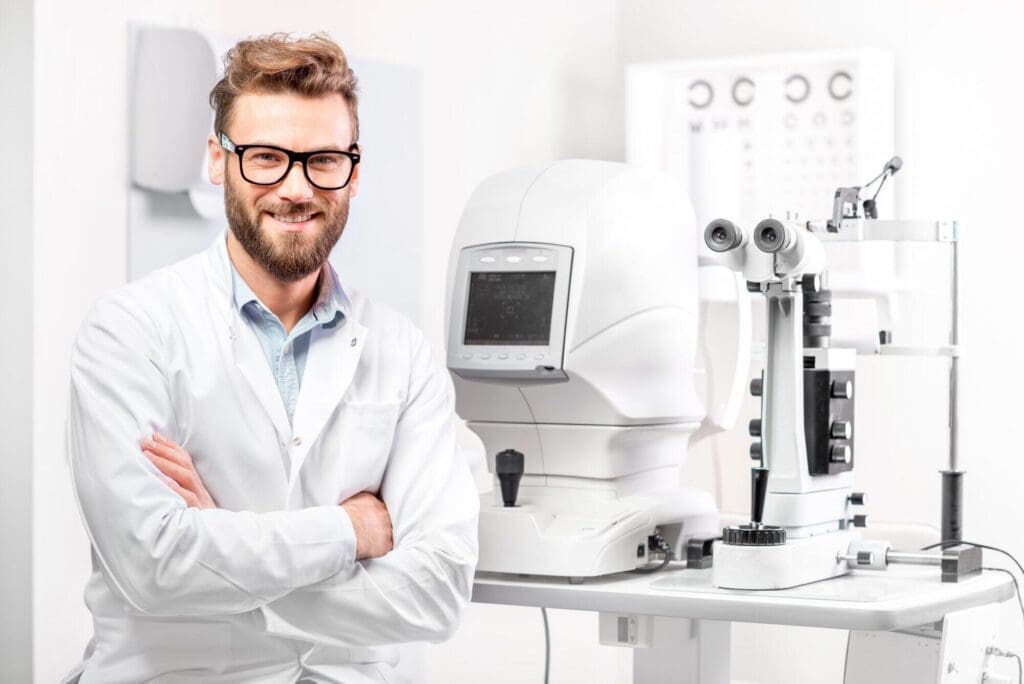
Nearly 2.2 billion people experience vision impairment globally. Having vision problems can affect your quality of life. You’re more likely to experience restrictions in your mobility and independence. What’s more, it increases your risk of falls, injuries, and poor mental health. Luckily, you can still maintain your clear vision and prevent potential eye issues. But first, you have to find the best eye doctor in Boise. With qualified experts, you can receive the most accurate and up-to-date eye care services. If you need help selecting a reliable eye doctor, below is a guide to help you. Start With Local Optometrists To find the best eye doctor in Boise, begin your search with local optometrists. Local professionals are often more accessible, making it easier to schedule regular eye exams. To find a local optometrist in Boise, you can: This way you can find an eye dentist with a deeper understanding of your community’s unique eye health needs. As a result, you can get more attentive and tailored care. Check the Eye Doctor’s Education and Credentials When looking for an eye doctor in Boise, ensure you check their education and credentials. Doctors with reputable education and credentials are likely to provide a higher quality of care. To assess their qualifications, start by researching optometry programs in Idaho. Ensure that these programs are accredited by the Accreditation Council on Optometric Education. If your optometrist has received education from this program, they may meet specific standards of quality. Additionally, find out if the eye doctor has taken the NBEO certification exam. It assures you that the optometrist possesses the necessary knowledge and skills to provide quality eye care. Look at the Eye Doctor’s Licensure Unlicensed eye doctors often don’t have the necessary training or expertise to provide safe and effective care. This can cause harm to your eye health. For your safety, ensure that your eye doctor is licensed to practice optometry in Idaho. To do this, check with the Idaho Board of Optometry. This licensure shows that the doctor meets the state’s requirements for training and competency. Review the Eye Doctor’s Specialization Different eye doctors specialize in different areas of treatment. This is why you need to consider the eye doctor’s specialization. Here are some common specializations and their focus areas: Ophthalmologists If you are suffering from specific eye conditions and need eye surgery, ophthalmologists can help you. Common eye conditions and diseases that they treat include: Ophthalmologists have at least eight years of additional medical training. This includes a one-year internship and a three-year residency. Optometrists Optometrists are primary eye care specialists. They offer comprehensive vision care, including regular eye exams, contact lens fitting, and refractive eye care. Pediatric Eye Specialists Pediatric eye specialists specialize in providing medical and surgical eye care for children under the age of 18. They offer treatment in a way that makes kids feel comfortable. Strabismus Specialists If you’re an adult with eyes that do not work properly together, opt for a strabismus specialist. They provide comprehensive diagnosis and management for eye motility disorders. Oculoplastic Surgeons These surgeons repair damage to or problems with the eyelids. They can also treat cosmetic issues dealing with tissues around the eyes. These include eyebrow lifts and blepharoptosis repairs. Retina Specialists Retina specialists diagnose and manage retinal diseases, including macular degeneration. They surgically repair torn and detached retinas. Also, they can treat problems with the vitreous-the gel-like substance in the middle of the eyeball. To find the right eye doctor, assess your eye issues. This will help you choose an eye doctor who specializes in your specific needs. Evaluate Years of Experience Experience matters when it comes to eye care. Look for an eye doctor who has several years of experience in the field of optometry. With more experience, eye doctors become better at diagnosing and managing various eye conditions. Also, experienced eye doctors are more likely aware of the latest treatments and technologies. These include microinvasive glaucoma surgery and advanced intraocular lenses. With advancements in eye technology, you can get better patient outcomes. As eye doctors gain experience, they develop better patient care skills. This allows you to access more personalized eye care solutions. Check Out Patient Reviews One of the best ways to find the best eye doctor in Boise is through patient reviews. Reading these reviews will give insights on: Reviews help you make an informed decision about which eye doctor to choose. They also give you an idea of what to expect during your visit. You can get reviews on the eye clinic’s website. For more unbiased reviews, you can visit websites like Yelp, Google Reviews, and the Better Business Bureau (BBB). Look at the Eye Services Offered Eye doctors in Boise offer a comprehensive range of services to ensure optimal eye health. These services can help address any eye issues and enhance your vision. Some key offerings eye clinics offer include: Knowing the scope of services helps you gauge the convenience of choosing a particular eye doctor. It ensures that your routine check-ups and prescription needs can be well managed within the chosen practice. Check to Ensure the Price is Right Your ideal eye doctor should fall within your price range. There is no point in seeking eye services you can’t afford. Research the cost of eye exams, prescription glasses, and other services at different eye clinics. Look for discounts and special offers from eye doctors, such as mail-in rebates and loyalty rewards. Some doctors may also offer sliding scales or unique payment plans for patients without insurance. Consider the quality of service you will get when choosing an eye doctor. While it may be tempting to go for doctors with discounts, keep in mind that low prices may also mean low-quality treatment. It may be worth paying a premium for higher-quality eye services. Consider Your Insurance Cover When searching for an eye doctor, consider your insurance coverage. Contact your insurance company to find doctors in your area who are in their network. This can
